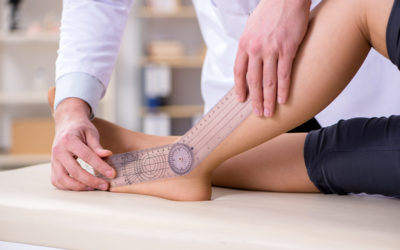Having a rotator cuff injury can be a painful and debilitating problem. It can make everyday tasks frustrating to complete. If you feel like you are having pain in your rotator cuff, it’s important to speak to your physician to confirm that is the issue before obtaining treatment. He or she may recommend getting rotator cuff surgery. As with any surgery, knowing what to expect and when it may be appropriate for you is helpful.
What Is The Rotator Cuff?
The rotator cuff is part of your shoulder and consists of a set of muscles and tendons that cover your bone. In this area of your body, you have three different bones- the humerus (upper arm), scapula (shoulder blade), and clavicle (collarbone). You also have many different muscles that help your arms reach and move. These include the infraspinatus, which primarily lets you extend the shoulder and move it in many different directions. The subscapularis does a similar task but is responsible for the upper arm bone (humerus). Since there are so many moving parts to the rotator cuff, identifying the correct issue is pertinent to avoid any long-term damage to surrounding muscles.
Signs and Symptoms of Injury
If you have a rotator cuff injury, you will be experiencing pain in your shoulder area that may feel deep in the muscle. Like laying on the affected side, certain pressure may be more challenging. Lowering and extending your arms will similarly be painful. You may hear and feel cracking or ‘grating’ noises when moving it in a certain direction. You will likely have limited mobility and experience a lot of discomfort or pain.
Causes of Rotator Cuff Injuries
Two main causes of rotator cuff injuries include acute or degenerative tears—an acute tear results from an action that may have pulled the muscle too much. Examples may include playing a sport and falling on an extended arm. A degenerative tear is typical wear-and-tear and can happen as we age or with excessive use of this set of muscles. This may also be referred to as a partial tear. Activities like painting, lifting weights, sports with repetitive arm movements can contribute to quicker degeneration.
There are some other potential causes of rotator cuff injuries. If you are an older person, you may have some bone spur or blood supply issues, making healing more difficult on the body. Bone spurs can build up over time and cause shoulder impingement, which causes spurs to irritate the shoulder muscles. Rotator cuff tendinopathy (tendinitis) is when the tendons around the shoulder joint are irritated and cause pain. Bursitis may also lead to shoulder pain, but is the result of the bursa, a sac that is filled with fluid and protects your rotator cuff, bothered with repetitive motions. It can also be from an infection.
When Does a Rotator Cuff Need Surgery?
When you first visit your physician about a rotator cuff injury, you will likely be treated with home care treatment. If these are not successful, you may need to get surgery. If this is an option presented to you, waiting too long for rotator cuff surgery can be harmful and should be done immediately if required. Surgery is usually recommended if your injury has not gone away over several months of other treatments, if the tear is substantial, or if it greatly affects your lifestyle. There are several different surgery options to fix the muscles, with some being more intensive than others.
Types of Surgeries
There are two primary types of rotator cuff surgeries. One is an arthroscopic repair, and the other is an open tendon repair. Arthroscopic repairs make small cuts into your arm to insert tools and a camera to repair your arm. Open repairs are for larger injuries to the area and result in a larger incision. The surgeon will then detach your shoulder muscle to have easy access to the set of tendons in the area. This is a good option if you have bone spurs, reconstruction is needed, or if the tear is substantial.
How Long Does Rotator Cuff Surgery Take?
Most surgeries are outpatient, which means you won’t need to stay overnight at the hospital or facility. After the surgery, you will likely be monitored to ensure there are no complications and your body is adjusting well. This is also to ensure that any risks, like medication issues or allergies, are not. Since these are surgeries, you will be put under general anesthesia. Be transparent with your doctors and surgeons about what medications you are on, what diagnosis you may have, and things your body reacts poorly to. In terms of recovery, the rotator cuff surgery success rate is quite high, with approximately 64% of patients showing healing after one year and almost 82% after five years.
Pros and cons of rotator cuff surgery
While surgery may be the most important option presented to you by your physician, you should take time to consider what is best for you. If you have extensive damage to the area, getting surgery will be the best option for long-term results. However, it’s important to note that it will initially be painful and take some time to recover fully. You will be in a sling and will likely experience pain and discomfort as you heal. Physical therapy is encouraged to build movement and strength. It will likely take several months to recover and get your range of motion back.
While surgery will certainly help your mobility, things like finances may play a large part in your decision.
Check with your insurance company to see what kind of coverage you may have to save appropriately. Be sure to include things like physical therapy and follow-up appointments into your budget. Be prepared to take some time away from work if needed. While rotator cuff surgery is an excellent option, it is a large decision that should include all considerations.




